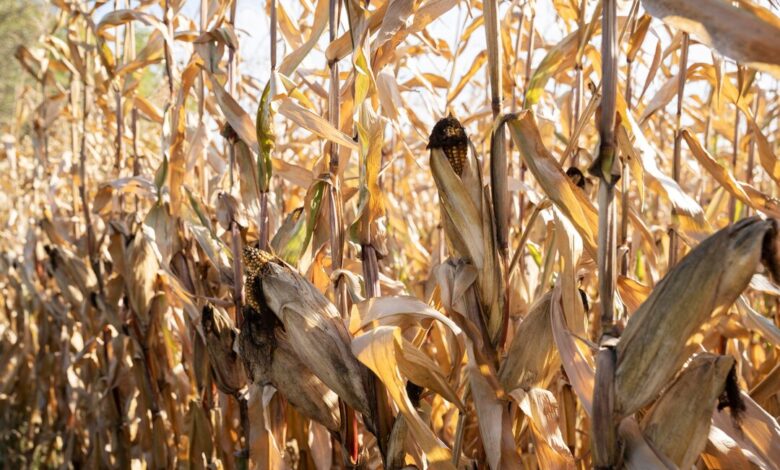Drought Impact on Summer Cropping Yield: Challenges for Farmers, Says Basotho Agricultural Machinery Association Chairperson

As the summer cropping season continues, it remains too early to fully assess the yield. However, the drought conditions experienced in November and December last year have already had a significant impact on most crops. This was shared by Mr. Motlohi Sekoala, a block farmer and the Basotho Agricultural Machinery Association Central Region Chairperson, during an interview with the Agency.
Mr. Sekoala expressed concern over the ongoing challenges posed by the drought, highlighting its detrimental effects on crop growth and farming operations. “Although it’s still too early to anticipate the overall summer cropping yield, it is clear that the drought has already affected most crops,” he said. The dry conditions during key months have hampered the development of crops, making it difficult for farmers to predict how their harvests will fare.
One of the key issues farmers are facing, according to Mr. Sekoala, is the ineffective use of herbicides. Typically, herbicides work best on moist soil, where they can effectively target and eliminate weeds. However, the prolonged drought has resulted in dry conditions, leaving the soil unable to absorb the chemicals as intended. As a result, many crops have suffered from weed infestations, further complicating the growing season for farmers.
“The herbicides that we usually rely on to manage weeds have not served their purpose as effectively as we would have liked,” Mr. Sekoala explained. “With the soil being too dry, the weeds have had more freedom to grow, which is another challenge for farmers to contend with this season.”
Farmers are now facing a tough situation, with reduced crop yields and the added difficulty of weed management. Despite these setbacks, Mr. Sekoala remains hopeful that the upcoming months will bring improved conditions, allowing crops to recover and the yield to be more favorable. However, the lasting effects of the drought may continue to present challenges, making it crucial for farmers to adapt to the changing environment and explore new methods for crop management.
The drought has underscored the vulnerability of the agricultural sector in Lesotho, reminding farmers of the critical need for effective water management and climate-resilient farming practices. As the summer season progresses, it will be important to monitor the recovery of crops and the overall impact on food production in the region.
Join 'Lesotho News' WhatsApp Channel
Get breaking Lesotho news — delivered directly to your WhatsApp.
CLICK HERE TO JOIN



